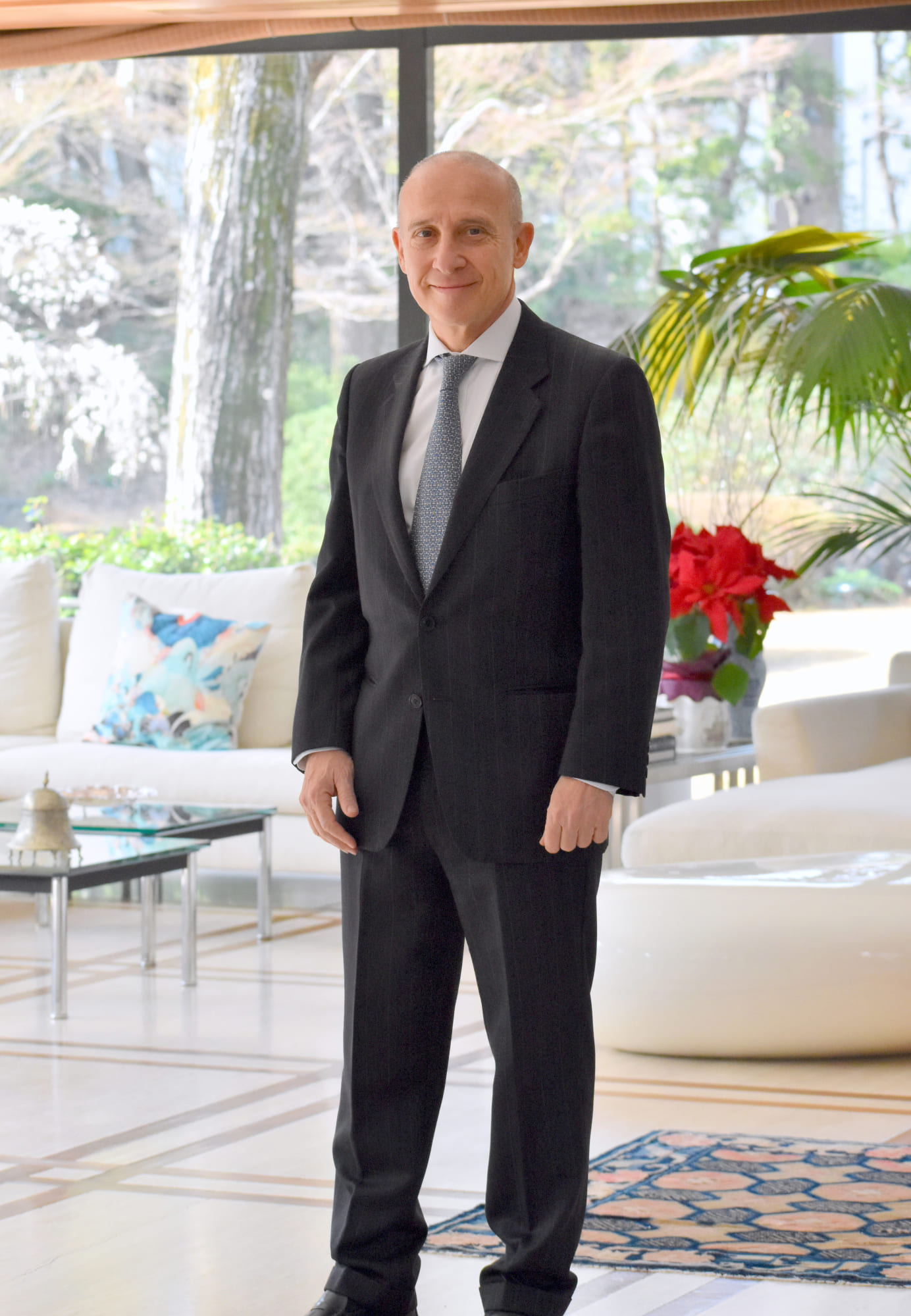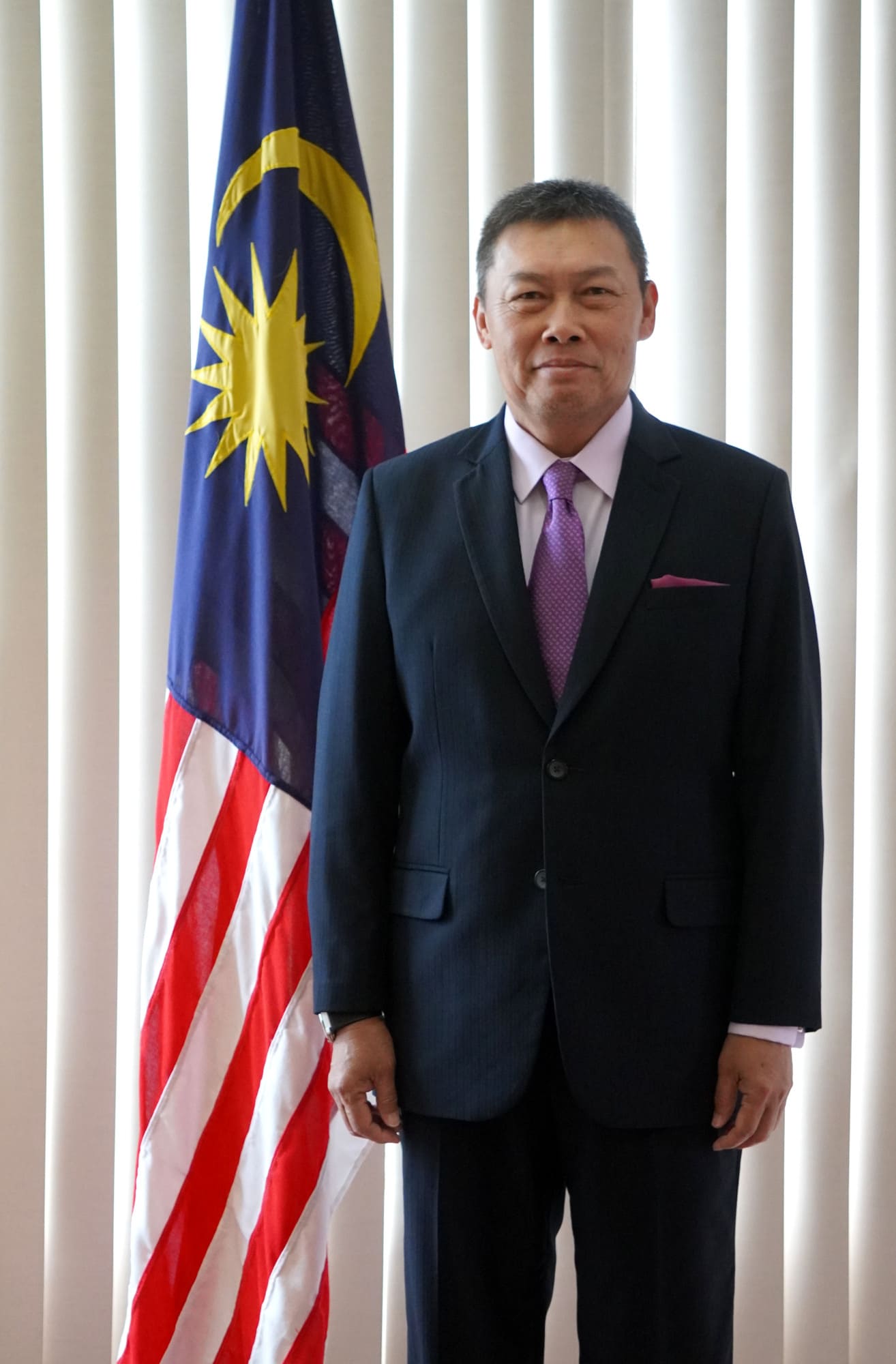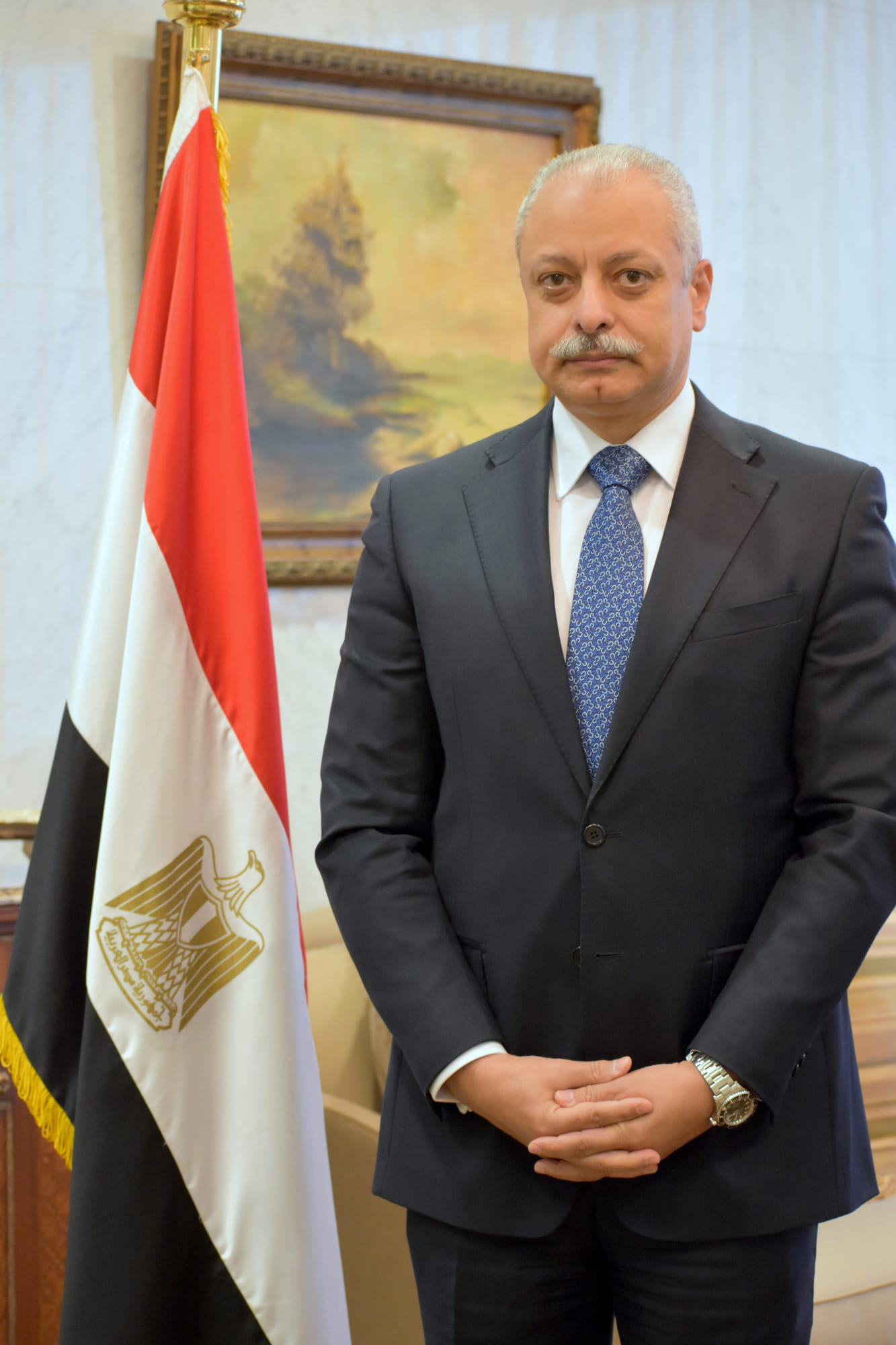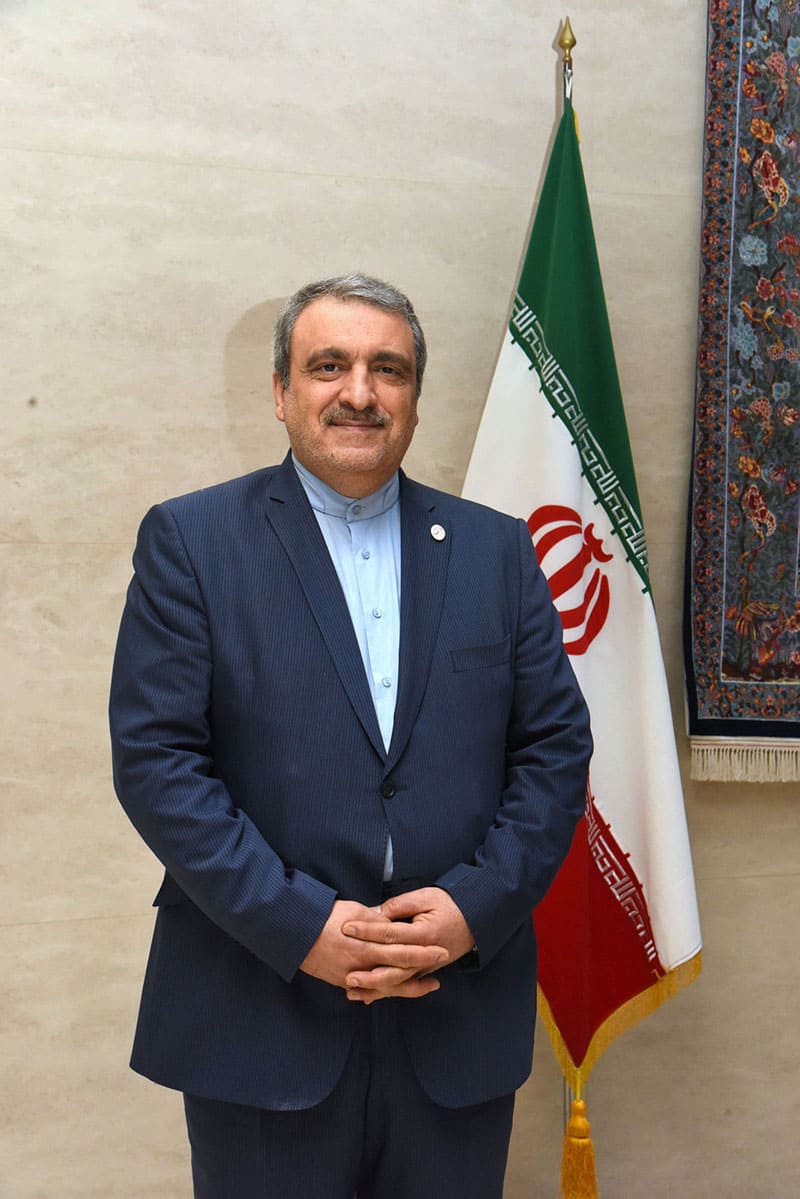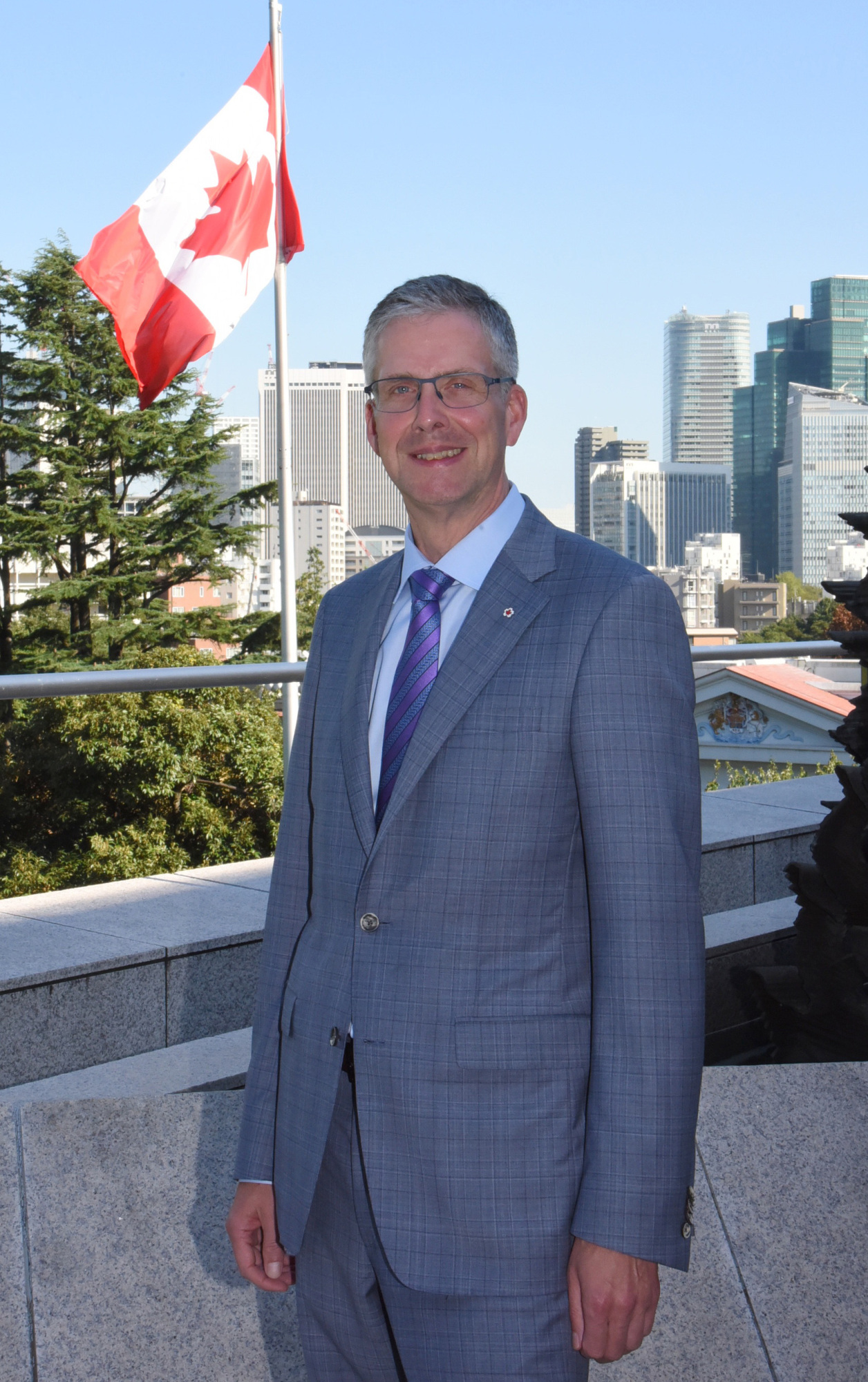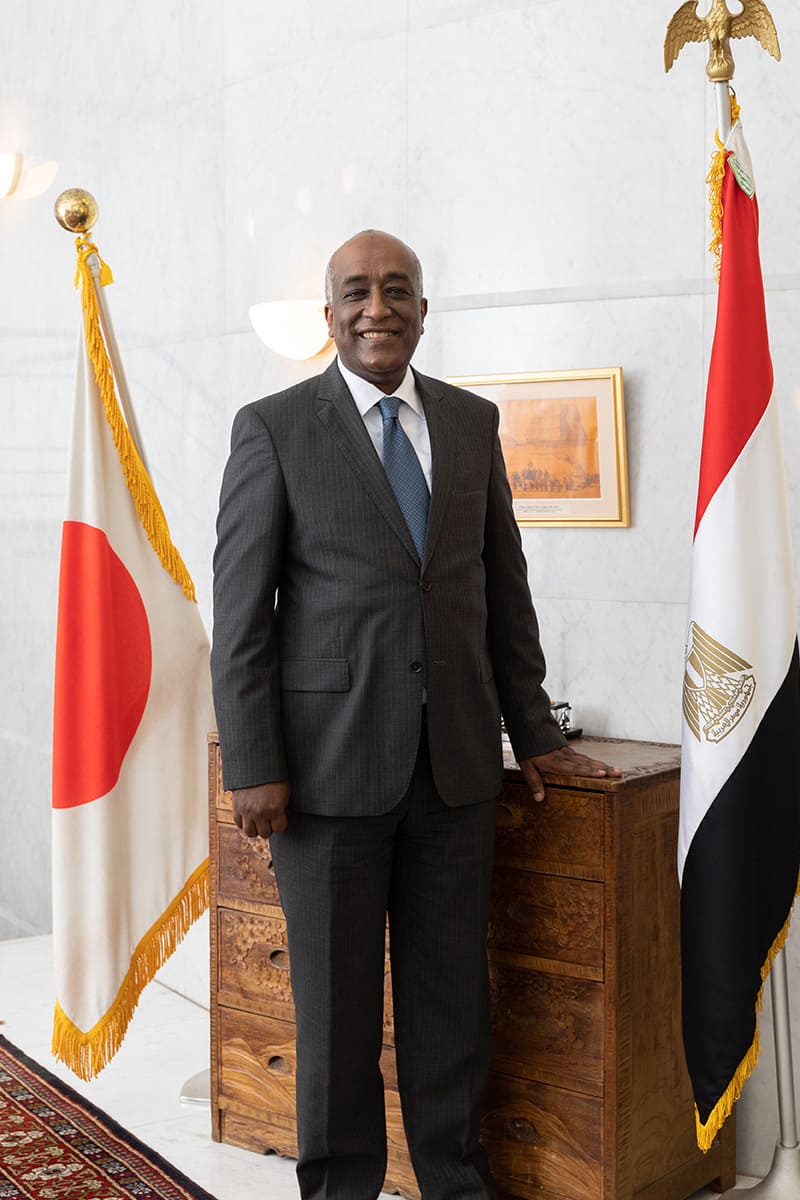
July 01, 2022
Much more than pyramids: Egypt builds the future
Nation leads North Africa in renaissance, Ambassador Abubakr says
- Name: Mohamed Abubakr
- Title: Ambassador of Egypt
- URL: https://egyptembassy.jp/
- Hometown: Cairo
- Years in Japan: less than 1
The Egyptian Embassy is easy to find in Tokyo. On a tree-lined street in Daikanyama, a grid of ornate metal latticework protects a driveway. The entrance is flanked by small plaster sphinxes, while statues of idealized pharaohs greet pedestrians at eye level. The embassy is what many Japanese people would expect. The man who now lives inside that embassy wants to change those expectations. Ambassador Mohamed Abubakr Saleh Fattah is beyond pyramids and pharaohs. For him, Africa’s third-most-populous country is more exciting today than in ancient times.
A career diplomat who was posted in Libya just after the fall of Moammar Gadhafi, Ambassador Abubakr’s constant smile and cheer are tinged with melancholy: Here is a man who has seen bad things happen. He explained, in the rise-and-fall accent of an educated Egyptian, that Japan is the crown-jewel posting of his career, the achievement of a long ambition. “When I was in school in Cairo, and then at Notre Dame, I actually studied the Japanese language, and read anything related to Japan. I wanted to understand the culture and the dedication here. This was in the ‘80s! When only books were available! But I continued learning, for almost six years during my education, in the hope of coming here some day.”
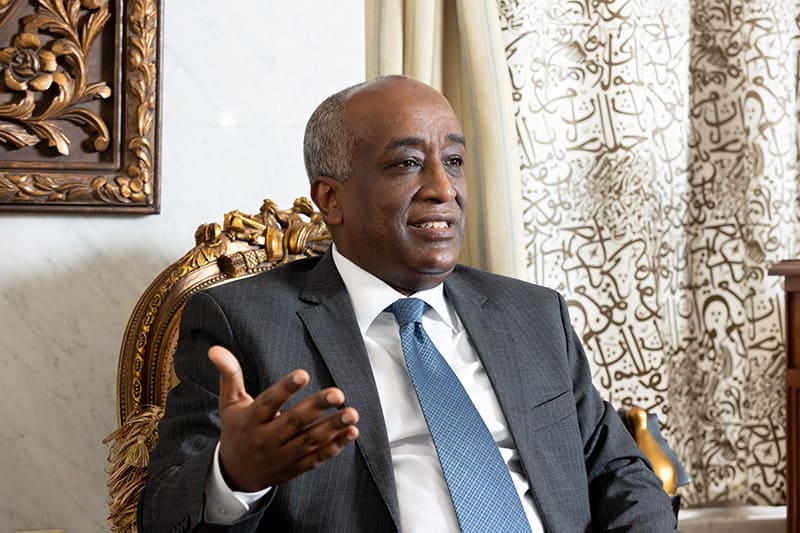
Abubakr is a talker. The stories of college life flowed into the stories of his many postings: London, New York and India. Listening to him describe his career, it would be easy to forget that during his time abroad Egypt was undergoing difficult change. The 1980s saw political violence, the 1990s brought economic disaster, and eventually outright violent revolution gripped the country in 2011. Such things were not mentioned directly. Instead, Abubakr took pains to describe something I hadn’t known: that throughout the past 50 years, Japan was consistently operating in Egypt, as a manufacturer, builder and educator.
“Toyota started in Egypt in 1931, in Alexandria for cotton. They have moved into many types of businesses; the holding company is involved in wind energy, and they are building a seaport robo-terminal. There is also Sumitomo, Nissan and many other companies and industries. Their focus is on infrastructure and on building our green economy, like hydrogen.” The mention of a green economy in a land known for being 95% desert made me sit up. Abubakr continued proudly. “We are hosting COP27” — the United Nations climate conference — this year. We are incredibly ambitious, and incredibly busy. Between 2030 and 2035, we will have 46% of our energy from clean sources. The Japanese companies are one of the key elements involved in helping us make this major shift.” His eyes sparkled a bit at my surprise. “Yes. And there is more. Much more!”
At this point the conversation took a turn.
“You see, we are trying to lead all of North Africa in a renaissance. Not just culturally, but industrially. We are building 14 new cities. They are 95% finished, including a new capital. You must understand how amazing such an effort is. These are whole new cities, built out of the desert. In Cairo, there are over 20 million people. To change this place, to build major reconstruction, it was impossible. Think of not only the people, but the history under the ground. It is also incredibly crowded. The size of the current capital is 91,000 acres (37,000 hectares). The new administrative capital is double the size of this. It is about 60 km outside of the capital. From total desert to a smart city.
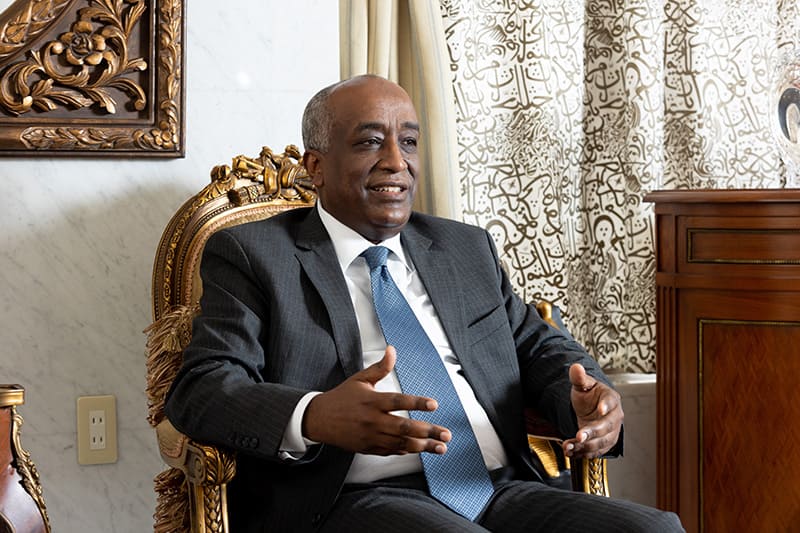
As an outsider, you might find yourself struggling to understand what Abubakr was saying. If you think about the Malaysian “administrative capital” outside of Kuala Lumpur, which only 10 years ago was a corporate Potemkin village, an empty shell of a downtown with largely empty government buildings and immaculate and empty parks, you might wonder if this is the same case. But when asked Abubakr laughed. “A very good question indeed! But you must understand, we used to live in only 4% of the area of Egypt. The Nile River valley is our only option. So such waste … it would be impossible. This effort is larger than cities. The target is to reach 15% land use across the country.”
He went on: “These new cities are already being populated. We have already built universities in these cities. They opened last year. We have residential areas, we have museums opening. New opera house. We have plots for all the new embassies once they agree to move to the new capital. We did not focus only on the government. We have built a new core that is integrated just for business, not just government. And we are not done. There is another round to start soon: another 16 cities.”
Ambassador Abubakr had more surprising facts to share: that there are 48 schools owned and managed by Japanese across Egypt, with 200 more planned to open by 2024. That Japan opened a new university in Alexandria last year. That with the 14 new cities will come a million new single-family homes for slum residents across Egypt, the single greatest effort to raise up the poorest families in the history of the country.
It was a great reminder that outside our peaceful and slow-moving life in Japan, the world is constantly changing … and growing. As Japan’s GDP growth rate hovers above a negative number, Egypt’s GDP is growing at an average of 6% coming out of COVID. Such growth is powering the incredible rate of progress he was describing, even as their closest neighbor, Libya, is mired in civil war and chaos. As I left the embassy, I glanced down at the two plaster sphinxes. Perhaps they should be replaced with two of the wonders of modern Egypt: a construction crane and a solar panel.


